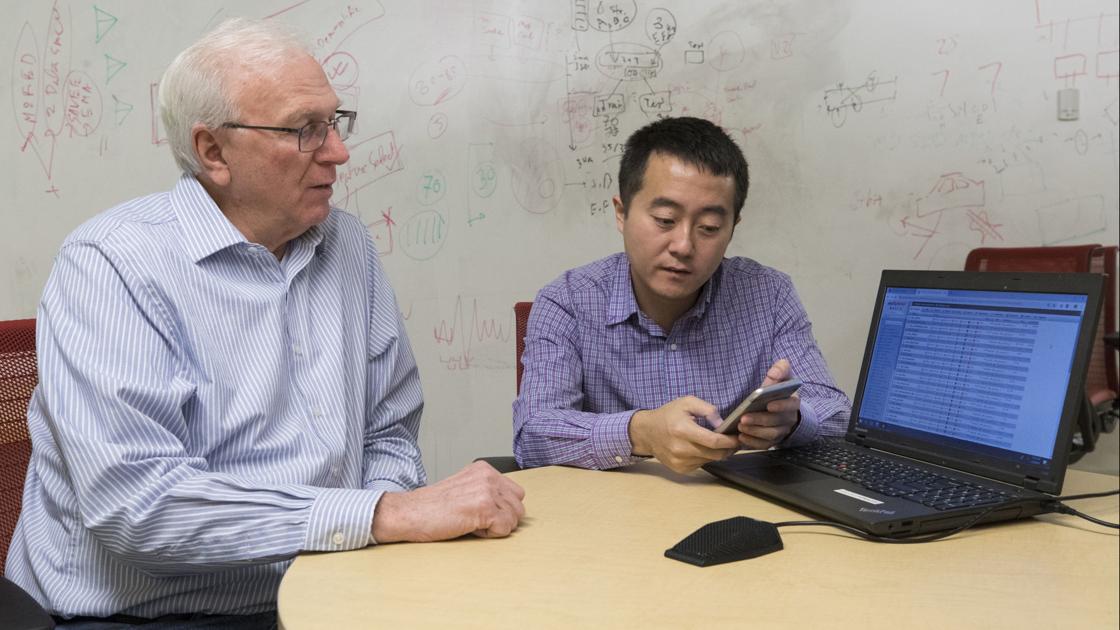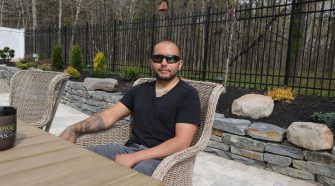As the number of people with dementia and Alzheimer’s disease grows in the United States, so does the number of people taking care of them.
Every year, 15 million Americans provide more than 17 billion hours of unpaid care for family and friends with Alzheimer’s disease and related dementias, according to the Centers for Disease Control and Prevention. That work can take a toll, and new research at the University of Virginia aims to test new technology for effective caregiver support.
“Alzheimer’s is one of the biggest problems that exists in the medical community at the moment,” said Jack Stankovic, a professor of computer science at UVa. “And it’s been very clear that there are health care problems not only for the person with Alzheimer’s or dementia, but also for their caregivers.”
Stankovic, along with fellow researchers at Ohio State University and the University of Tennessee, is developing a system that will record caregivers as they talk to the patient, analyze their voice and tone and prompt them to relax and de-stress as needed.
He and Hongning Wang, an assistant professor of computer science at UVa, are using two tracks of machine learning to analyze caregivers’ moods and prompt positive actions.
First, a microphone in the patients’ home records the caregivers’ interactions with the patient. It is not listening for discrete words, but for the pitch and tone of phrases.
The sounds are analyzed by Stankovic and Wang’s machine learning program. If the program picks up tones of stress or anger over a period of time, it will send a quick reminder to the caregiver’s smartphone, reminding them to relax in a way personalized to them — whether going for a walk, doing a craft or listening to music.
The program also will use another layer of machine learning to tailor those recommendations, Stankovic said, so that users aren’t presented with the same prompt over and over again.
They have tried to build a system that is specific enough to accurately detect English-language voice patterns, but also broad enough to be useful for people who speak with different accents and cadences.
It is not yet as accurate as he would like it to be, he said, but he believes it’s worth testing a device that does not have to be worn, like a smartwatch.
“It’s a balance between using technology that’s actually easy to use, but also accurate,” Stankovic said.
Karen Rose is a professor of nursing at Ohio State University and director of the school’s Center of Healthy Aging, Self-Management and Complex Care.
As a nurse, her goal is to help patients stay at home as long as possible. She recognizes, though, that this can place long-term stress on family and friends, and society and health care providers need to be better equipped to support caregivers.
“My work has always been how to support people taking care of others, because it can be very stressful — very rewarding, but very stressful,” she said. “Often, caregivers are left on their own to figure it out, with their own resources.”
Time will tell if caregivers are comfortable using the technology, Rose said, adding that the group has worked to alleviate privacy concerns and make sure all data will be secure.
The team’s grant is in the first of four years, so right now Stankovic and Wang are trying to get the technology correct. Eventually, Rose will recruit as many as 50 participants to test the approach in Columbus, Ohio.
“The bottom line is trying to support caregivers so they can continue doing their work for as long as they want to,” Rose said.















